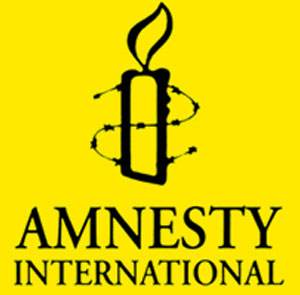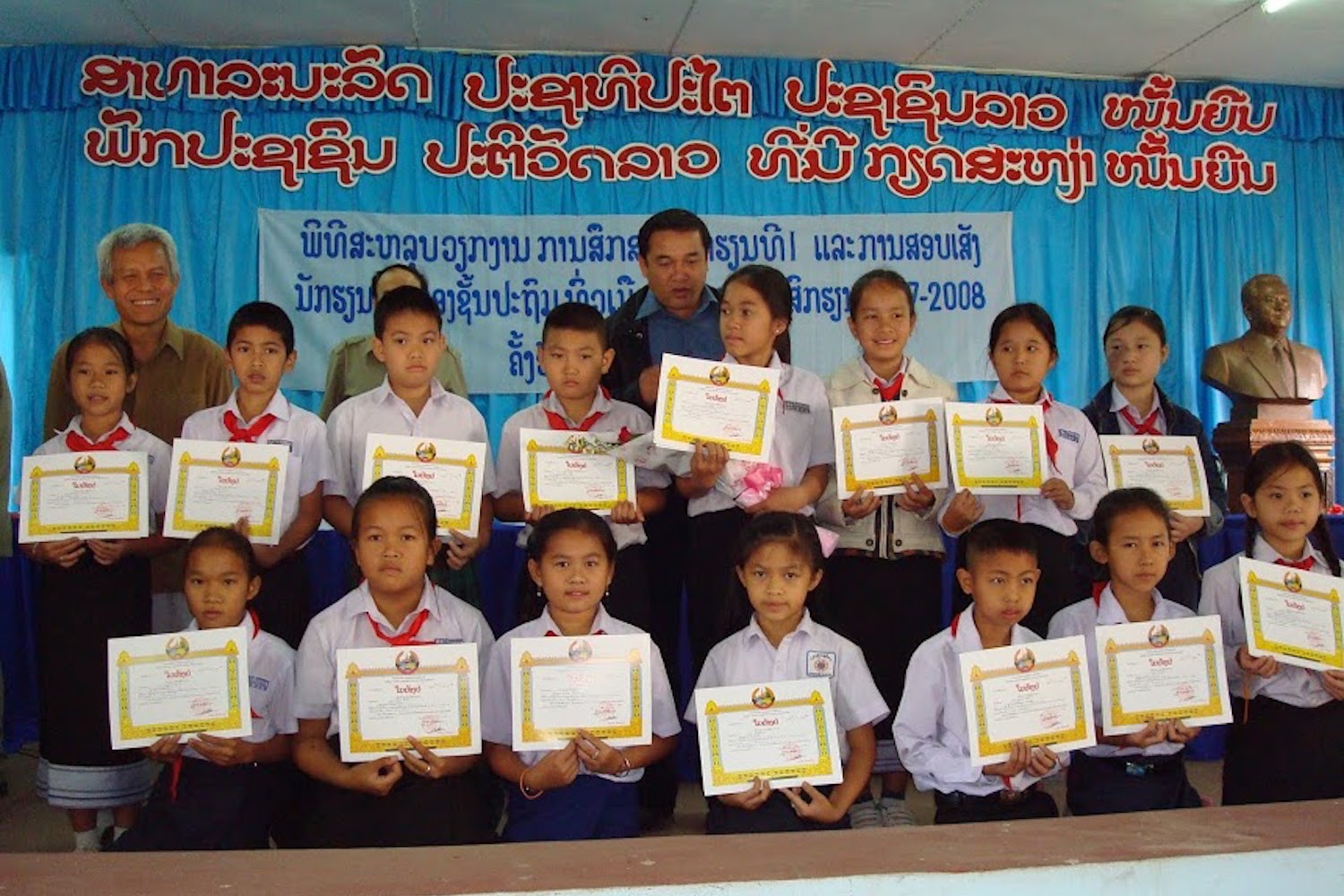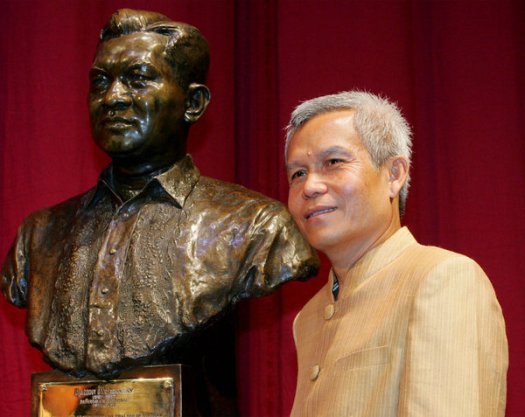 Amnesty International: 25 June 2015
Amnesty International: 25 June 2015
Amnesty International urges Laos to undertake a thorough and independent investigation into the enforced disappearance of Sombath Somphone
Human Rights Council adopts Universal Periodic Review outcome on the Lao People’s Democratic Republic
Amnesty International welcomes recommendations made by 10 states in the UPR Working Group, on the enforced disappearance of well-known and respected civil society leader Sombath Somphone, who has dedicated his life to promoting sustainable development and poverty reduction. 1 His abduction was captured on CCTV footage, as he was stopped by traffic police at around 6pm on 15 December 2012 outside a police post in the capital, Vientiane. He was last seen being driven away in a white pick-up truck and has not been seen or heard from since then. 2 Unfortunately, Laos did not accept six of these recommendations; however, the government did commit to undertaking a thorough and impartial investigation into his disappearance which Amnesty International calls on it to fulfil. 3
A further 10 states urged Laos to ratify the International Convention for the Protection of All Persons from Enforced Disappearance, 4 and Laos has indicated that it is considering ratification. 5 It is regrettable, however, that Laos rejected calls by seven states to extend a standing invitation to the Special Procedures, 6 and specifically to facilitate a visit by the Working Group on Enforced or Involuntary Disappearances. 7
The decision by the authorities to reject offers of technical assistance in the search for Sombath Somphone signals a lack of genuine commitment to uphold the rule of law and to protect the rights of its citizens. 8 The disappearance of Sombath Somphone and the failure by the authorities to adequately investigate have become symbolic of the climate of repression in Laos, with a lack of transparency and no accountability for human rights violations. This in turn has had a chilling effect on civil society and on the exercise of the right to freedom of expression more generally.
Despite comments in the opening statement by the head of the Lao delegation to the UPR Working Group on 20 January 2015 that “[t]he rights to freedom of expression, association and assembly are guaranteed in the Constitution, laws and decrees”, in practice these rights are severely restricted with the state exercising tight control over the media, the judiciary and political and social institutions. Amnesty International calls on the authorities to extend its apparent willingness to participate in the UPR process, and particularly as it seeks membership of the UN Human Rights Council in the upcoming elections, to enable independent monitoring of the human rights situation and to engage in genuine consultation on the promotion and protection of human rights.
Background
The UN Human Rights Council adopted the outcome of the Universal Periodic Review of Lao People’s Democratic Republic on 25 June 2015 during its 29th session. Prior to the adoption of the review outcome, Amnesty International delivered the oral statement above.
Public Document
International Secretariat, Amnesty International, 1 Easton St., London WC1X 0DW, UK www.amnesty.org
****************************************
- Human Rights Council, Report of the Working Group on the Universal Periodic Review – Lao People’s Democratic Republic, A/HRC/29/7, recommendations 121.25 (Germany); 121.94 (Luxembourg), 121.95 (Poland), 121.96 (Portugal), 121.97 (Sweden), 121.98 (Switzerland), 121.99 (United Kingdom of Great Britain and Northern Ireland), 121.100 (Australia), 121.101 (Canada), 121.151 (Finland).
- See Amnesty International report, Laos: Caught on camera – the enforced disappearance of Sombath Somphone (Index: ASA 26/002/2013).
- A/HRC/29/7/Add.1, page 8.
- A/HRC/29/7, recommendations 121.13 (Paraguay); 121.20 (Netherlands), 121.21 (Canada, Spain), 121.22 (Uruguay), 121.23 (Italy), 121.24 (Brazil), 121.25 (Germany), 121.26 (France) 121.27 (Argentina).
- A/HRC/29/7/Add.1, page 3-4.
- A/HRC/29/7, recommendations 121.67 (Japan), 121.68 (Luxembourg), 121.70 (Ghana), 121.71 (Hungary), 121.72 (Netherlands), 121.73 (Latvia), 121.74 (Paraguay), 121.75 (Norway), 121.76 (Uruguay) and A/HRC/29/7/Add.1, page 6.
- A/HRC/29/7, recommendation 121.75 (Norway).
- A/HRC/29/7/Add.1, page 8
Sombath Somphone, a prominent civil society member who was abducted outside a police post in the capital, Vientiane, in December 2012, remained disappeared with no progress in his case. In March, a former military general heading a non-profit organization – widely believed to be a government proxy – made a failed attempt to have Sombath Somphone’s name removed from the agenda of the ASEAN People’s Forum event. No progress was made in the case of Sompawn Khantisouk, an entrepreneur who was active on conservation issues. He remained disappeared since being abducted by men believed to be police in 2007.





 เมื่อวันที่ 15 ธ.ค. สำนักงานแอมเนสตี้ อินเตอร์เนชั่นแนล ออกแถลงการณ์ เนื่องในโอกาสครบรอบสามปีการหายตัวไปของนายสมบัด สมพอน เจ้าของรางวัลรามอน แมกไซไซ สาขาผู้นำชุมชน ในปีพ.ศ.2548 โดยเป็นจดหมายจ่าถึงรัฐบาลสปป.ลาว ระบุถึงความกังวลจากทุกมุมโลกต่อการหายตัวไป และการขาดการสืบสวนอย่างมีประสิทธิภาพในกรณีของนายสมบัด สมพอน มีใจความว่า
เมื่อวันที่ 15 ธ.ค. สำนักงานแอมเนสตี้ อินเตอร์เนชั่นแนล ออกแถลงการณ์ เนื่องในโอกาสครบรอบสามปีการหายตัวไปของนายสมบัด สมพอน เจ้าของรางวัลรามอน แมกไซไซ สาขาผู้นำชุมชน ในปีพ.ศ.2548 โดยเป็นจดหมายจ่าถึงรัฐบาลสปป.ลาว ระบุถึงความกังวลจากทุกมุมโลกต่อการหายตัวไป และการขาดการสืบสวนอย่างมีประสิทธิภาพในกรณีของนายสมบัด สมพอน มีใจความว่า




 We are disappointed that the Lao PDR investigation into Sombath’s disappearance has seemingly not commenced in any substantial manner even after 2 years.
We are disappointed that the Lao PDR investigation into Sombath’s disappearance has seemingly not commenced in any substantial manner even after 2 years.
